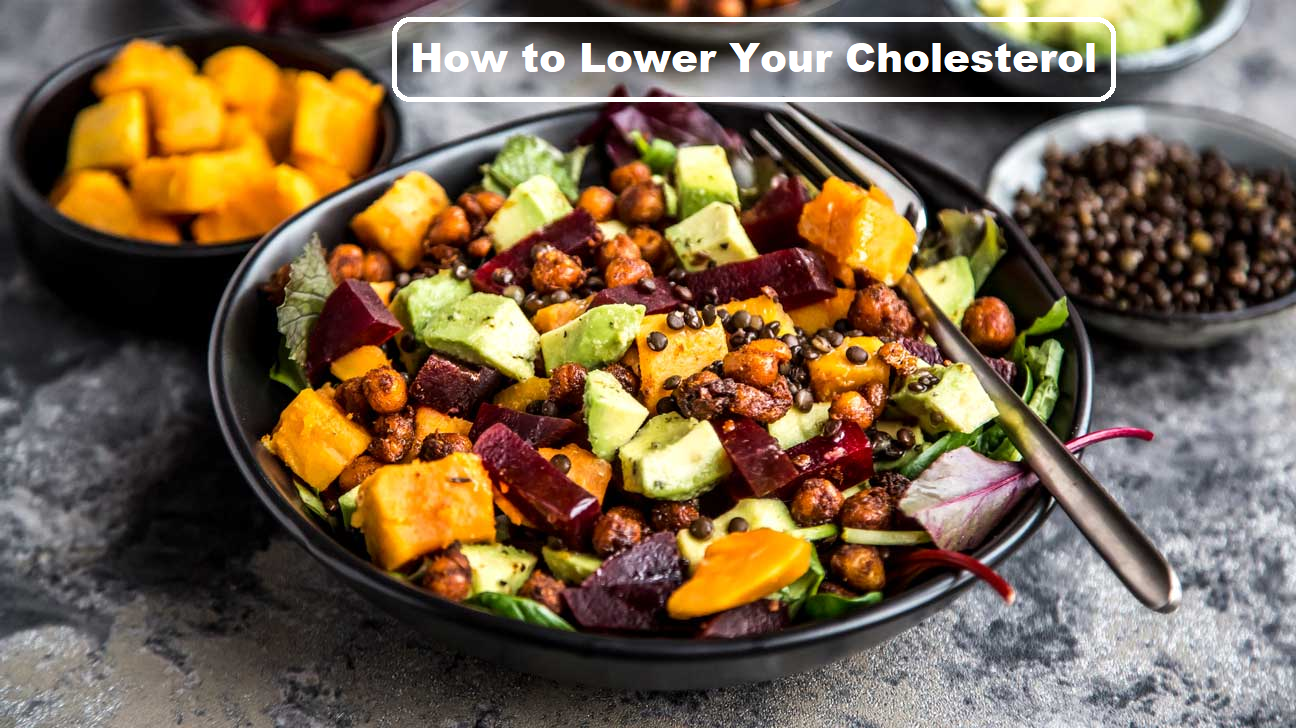If you’ve been diagnosed with high cholesterol or are looking for ways to improve your heart health, understanding how to lower your cholesterol is more important than ever in 2025. High cholesterol, particularly elevated LDL (low-density lipoprotein) levels, is one of the leading causes of heart disease and stroke worldwide. The good news? You can take charge of your health and reduce your cholesterol levels naturally—without immediately turning to prescription medications.
In this blog post, we’ll guide you step-by-step through how to lower your cholesterol using proven methods that focus on nutrition, exercise, lifestyle changes, and targeted supplements. With the growing awareness of natural health approaches, many people are discovering that small changes in their daily routine—such as improving diet, increasing fiber intake, reducing trans fats, getting regular physical activity, and avoiding smoking—can dramatically reduce cholesterol and enhance overall cardiovascular health.
Whether your goal is prevention or managing existing high cholesterol levels, learning how to lower your cholesterol empowers you to make informed decisions that benefit your heart, body, and mind. Read on to discover practical, research-backed tips that will help you build healthier habits and stay cholesterol-smart in 2025 and beyond.
Why Cholesterol Matters
Before learning how to lower your cholesterol, it’s important to understand the basics. Cholesterol is a waxy, fat-like substance found in your blood. Your body needs it to build cells and produce hormones, but too much of it—especially LDL (low-density lipoprotein)—can lead to plaque buildup in your arteries.
The two main types are:
- LDL (Bad) Cholesterol: Leads to arterial blockages.
- HDL (Good) Cholesterol: Helps remove LDL from your bloodstream.
When LDL levels rise and HDL levels drop, your cardiovascular risk goes up. That’s why it’s crucial to learn how to lower your cholesterol naturally and sustainably.
1. Eat Heart-Healthy Foods
One of the most effective ways of how to lower your cholesterol is by changing what you eat. Diet plays a huge role in managing cholesterol levels.
Focus on:
- Soluble fiber: Found in oats, beans, lentils, fruits, and vegetables. It helps reduce LDL by blocking its absorption.
- Healthy fats: Opt for monounsaturated fats (olive oil, avocado) and polyunsaturated fats (nuts, seeds, fatty fish).
- Plant sterols and stanols: Naturally occurring compounds that help block cholesterol absorption. Found in fortified foods.
Avoid:
- Trans fats (partially hydrogenated oils)
- Excess saturated fat (found in red meat, butter, full-fat dairy)
- Refined carbohydrates and added sugars
Consistently choosing better foods is a foundational part of how to lower your cholesterol and improve heart health.
2. Exercise Regularly
Another key factor in how to lower your cholesterol is physical activity. Exercise not only boosts your HDL levels but also helps your body use LDL more efficiently.
Aim for at least:
- 150 minutes/week of moderate aerobic activity (brisk walking, cycling, swimming)
- 75 minutes/week of vigorous activity (running, HIIT)
- Muscle-strengthening activities twice a week
Even small changes—like taking the stairs instead of the elevator or going for a 20-minute walk after dinner—can contribute to better cholesterol control.
3. Lose Excess Weight
Being overweight—especially carrying extra belly fat—can increase your LDL levels and decrease HDL. One of the most powerful strategies on how to lower your cholesterol is weight loss.
Losing just 5–10% of your body weight can:
- Lower total cholesterol
- Improve LDL/HDL ratio
- Reduce triglyceride levels
Focus on gradual, sustainable changes: eat more whole foods, reduce sugar intake, and increase daily movement.
4. Quit Smoking and Limit Alcohol
If you’re serious about learning how to lower your cholesterol, cutting out tobacco is essential. Smoking lowers HDL cholesterol and damages blood vessels, increasing plaque buildup.
Similarly, excessive alcohol raises total cholesterol and triglycerides. Limit alcohol to:
- 1 drink/day for women
- 2 drinks/day for men
If possible, reduce it even more for optimal heart health.
5. Consider Supplements and Natural Remedies
Some natural supplements may help support your efforts to lower cholesterol:
- Omega-3 fatty acids (from fish oil or flaxseed)
- Psyllium husk (a fiber supplement)
- Niacin (vitamin B3, though only under medical supervision)
- Red yeast rice (contains compounds similar to statins)
Talk to your healthcare provider before starting any supplement, especially if you’re already on medication. Supplements should be seen as supportive—not a replacement—for a healthy lifestyle.
6. Monitor Your Cholesterol Levels Regularly
One often-overlooked step in how to lower your cholesterol is consistent monitoring. A simple blood test can show your:
- Total cholesterol
- LDL (bad cholesterol)
- HDL (good cholesterol)
- Triglycerides
Work with your doctor to create a personalized plan and track your progress every 6–12 months. This ensures you stay on the right path and adjust as needed.
Should You Take Medication?
For some individuals, especially those with genetic high cholesterol (familial hypercholesterolemia) or heart disease, lifestyle changes alone may not be enough. In such cases, statins and other cholesterol-lowering medications may be necessary.
Even if you take medication, understanding how to lower your cholesterol through lifestyle changes remains critical for long-term success and overall health.
Final Thoughts: How to Lower Your Cholesterol and Protect Your Heart
Understanding how to lower your cholesterol is one of the most empowering steps you can take toward a longer, healthier life. High cholesterol doesn’t have to be a life sentence or a constant source of worry. With the right combination of diet, exercise, lifestyle changes, and—if needed—support from your healthcare provider, you can bring your cholesterol levels under control naturally and effectively.
To recap, here’s how to lower your cholesterol in a smart, sustainable way:
- Eat more heart-healthy foods rich in soluble fiber, healthy fats, and plant sterols
- Limit foods high in trans fats, saturated fats, and added sugars
- Exercise regularly to boost good (HDL) cholesterol and lower bad (LDL) cholesterol
- Lose excess weight, especially around the abdomen
- Quit smoking and moderate your alcohol intake
- Consider natural supplements with professional guidance
- Get regular cholesterol checks and monitor your progress
By committing to these lifestyle habits, you’re not just lowering numbers on a blood test—you’re investing in a future with fewer health risks and more vitality. Remember, consistency is key, and small changes done daily can lead to powerful, long-term results.
For more expert health tips and wellness guides on how to live better every day, visit BlogHear.com—your trusted source for smart living in 2025 and beyond.
Top Medical Apps for Doctors in 2025: Revolutionizing Healthcare on the Go




